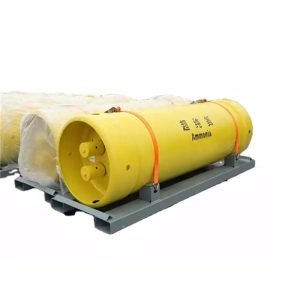The Many Uses of Ammonia: From Agriculture to Manufacturing
Ammonia (NH3) is a colorless, odorous gas that is one of the most widely used chemicals in the world. It is produced by the Haber-Bosch process, which combines nitrogen (N2) and hydrogen (H2) at high temperatures and pressures.

1. Ammonia in Agriculture:
One of the primary uses of ammonia is as a fertilizer in agriculture. Ammonia is an excellent source of nitrogen, an essential nutrient for plant growth. It helps in promoting healthy root development, improving crop yield, and increasing overall plant vigor. Farmers often use ammonia-based fertilizers to replenish nitrogen levels in the soil and ensure optimal plant nutrition.
2. Ammonia in Cleaning Products:
Ammonia is widely used in household and industrial cleaning products due to its excellent cleaning properties. It is highly effective in removing stubborn stains, grease, and grime from various surfaces. Ammonia-based cleaners are commonly used on glass, stainless steel, porcelain, and other hard surfaces. Its alkaline nature helps in breaking down dirt and stains, making it a popular choice for cleaning applications.
3. Ammonia in Plastics Manufacturing:
Ammonia plays a crucial role in the manufacturing of plastics. It is used as a feedstock for the production of various types of plastics, including polyvinyl chloride (PVC), polyurethane, and nylon. Ammonia acts as a precursor in the synthesis of these plastics, providing the necessary building blocks for their formation. The versatility of ammonia in plastic manufacturing allows for the production of a wide range of products, from pipes and cables to car parts and packaging materials.
4. Ammonia in Textile Industry:
In the textile industry, ammonia finds its application in the production of synthetic fibers such as nylon and rayon. These fibers are widely used in the manufacturing of clothing, carpets, upholstery, and other textile products. Ammonia is used as a solvent and a catalyst in the production process, aiding in the polymerization and spinning of fibers. Its ability to enhance the strength, durability, and elasticity of synthetic fibers makes it an indispensable component in the textile industry.
5. Other Uses of Ammonia:
Apart from the aforementioned sectors, ammonia has several other applications. It is used as a refrigerant in industrial refrigeration systems due to its low boiling point and high heat transfer capabilities. Ammonia is also employed in the production of explosives, pharmaceuticals, and dyes. Additionally, it serves as a precursor for various chemicals such as nitric acid, ammonium nitrate, and urea.
In conclusion, ammonia is a highly versatile compound that plays a significant role in various industries. Its uses range from being a fertilizer in agriculture to being a key component in the manufacturing of plastics and textiles. The cleaning properties of ammonia make it an essential ingredient in household cleaners. Its applications extend beyond these sectors to include refrigeration systems, explosives, pharmaceuticals, and more. The diverse uses of ammonia highlight its importance in enhancing productivity and efficiency across different industries.
If you have any specific questions or require further information about the uses of ammonia, please feel free to ask!



